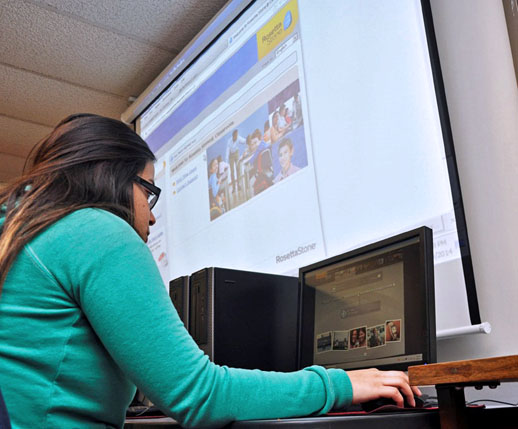Thousands of professionals apply for free English course


It is estimated that a professional who does not speak English can be paid up to 50 percent less than others with the same qualifications, but who dominate the second language.
Some 7,000 Puerto Rican professionals from a gamut of sectors applied for a Department of Education-backed free conversational English course that had only 550 spaces available, showing the need for this type of education to language skills, officials from America Aponte & Associates, the company hired to teach the classes, said Tuesday.
“About 7,000 professionals requested classes. However, the Department of Education just approved 550 spaces for this program, so we are focused on finding new ways to further expand these offerings that are clearly needed among local professionals who do not speak English,” said Alexandra Lúgaro, executive director of the firm.
Professionals of multiple job sectors, from engineers, bank employees and management of all government employees requested to enter to the program to mastering English and take advance in their career opportunities.
It is estimated that a professional who does not speak English can be paid up to 50 percent less than others with the same qualifications, but who dominate the second language, she said.
“The problem in Puerto Rico is so serious and dramatic because it starts during primary grades in the public school system, where the English teacher shortage is chronic and well known,” Lúgaro said. “So, students and professional adults drag this deficiency from the beginning of their school careers.”
The program — based on the Rosetta Stone platform — run by the private firm is financed with federal Workforce Investment Act funds. The “Puerto Rico English Program for Adults” is a comprehensive program to provide free conversational English classes for adults and employed people, to enable them to obtain new and better opportunities in the labor market.
“The interesting thing about the public response whenever we announce this program is that it shows unequivocally the reality of our workforce: it is not bilingual, which is essential to compete successfully in a globalized social and economic context,” said Lúgaro.
“There is an urgent need in Puerto Rico to expand the teaching of English as a tool for professional growth. The undeniable fact that there are professional employees in every imaginable branch who do not know English is an indication that this should be a priority in the progress of our workforce,” she said, adding that the 2010 Census showed that only 10 percent of island residents are considered to speak English “well.”
“That means that a huge percentage of employees limit their professional growth in many areas for which knowledge of English is vital, particularly in the business world,” Lúgaro added.
The commercial English learning programs for adults that are offered in Puerto Rico are financially inaccessible to many and sometimes insufficient to achieve a solid learning English. An adult does not learn the same way as a child and all that science has to be taken into consideration in the curriculum, she said.
“As we access more federal funds to continue expanding this program, we will be offering to those who could not get into this round at an affordable price, including materials and trained teachers,” Lúgaro said.








